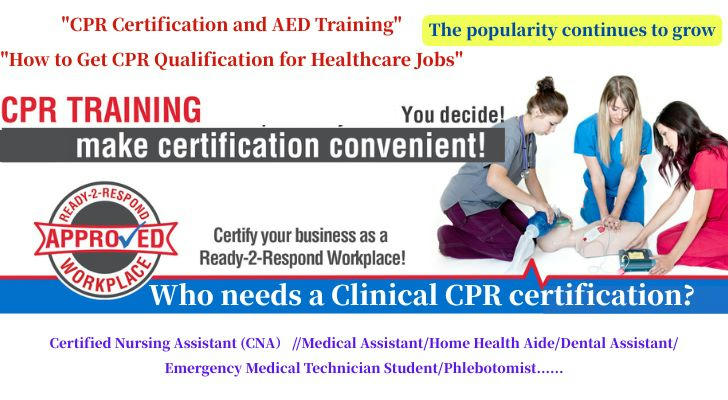2025 Clinical CPR Certification Training – Fast-Track Your Healthcare Career
Want to fast-track your career into healthcare in 2025? Get started with an online CPR certification course—affordable, flexible, and widely available. Top employers seek candidates with HealthStream CPR certification or American Heart Association training. Learn how to get certified with an online CPR course.
Why CPR Certification Demand Is Rising in 2025

An increase in healthcare job openings has led to a surge in employers requesting candidates with clinical CPR training. According to Google Trends, keyword searches such as, “CPR certification and AED training”,“How to qualify for CPR for healthcare jobs”“Top online CPR courses 2025”...
What Online CPR Courses Typically Include?
- Digital CPR, AED, and First Aid handbooks (PDF format)
- Fully online instruction with no in-person skills check required
- Unlimited retake options
- Immediate issuance of a printable digital provider card upon completion
- Eligibility for Continuing Medical Education (CME) credits (up to 8 AMA Category 1 Credits™)
Key Course Features:
- High-quality CPR techniques for adults, children, and infants
- Rescue breathing and airway management fundamentals
- Adherence to the latest ILCOR standards and JCAHO compliance
- National acceptance rate exceeding 98%
- Recognized by top healthcare employers nationwide
- Designed for clinical CPR certification for healthcare professionals
Who Needs Clinical CPR Certification?
CPR and AED certifications are considered essential for many frontline and entry-level healthcare positions, including:
- Certified Nursing Assistants (CNA)
- Medical Assistants
- Home Health Aides
- Dental Assistants
- EMT Students
- Phlebotomists
- Childcare Workers and School Staff
Employers often prioritize candidates who are certified and ready for immediate hire.
CPR Certification and Salary Potential:
Holding a CPR certificate is often a prerequisite for many healthcare-related roles and can enhance both job opportunities and salary potential. Below is a snapshot of average wages for jobs that commonly require CPR certification:
| Job Title | Average Hourly Pay | Average Annual Salary |
|---|---|---|
| Certified Nursing Assistant (CNA) | $19.84 | $41,270 |
| Medical Assistant | $21.50 | $44,720 |
| Home Health Aide | $17.06 | $33,714 |
| EMT/Paramedic | $21.16 | $46,690 |
These roles typically require up-to-date CPR and AED certifications, especially in clinical and care-based environments.
CPR Is a Skill Anyone Can Learn:
Learning CPR is not exclusive to those with a medical degree. It doesn’t require expensive tools or years of schooling. With proper training, most individuals can master the techniques necessary to respond in life-threatening emergencies—making it a valuable asset for any resume.
How to Get Certified in the U.S.
- In-Person Training: The most recognized certificates come from institutions such as the American Heart Association . These courses usually involve practical hands-on assessments.
- Online Courses: For those with time constraints, several accepted platforms now offer online-only CPR/BLS courses that meet hospital standards.
⚠️ Important: Not all online CPR programs are accepted by employers. It is recommended to confirm certification requirements in advance and choose platforms with refund guarantees and CME eligibility.
Comparing Popular CPR Programs:
| Provider | Format | Certification Time | CME Credit | Acceptance |
|---|---|---|---|---|
| HealthStream | Online + Simulation | 1–2 days | Yes | Widely accepted |
| AHA | In-person/hybrid | 1–2 days | Yes | Very high |
CPR Training and Job Readiness:
Some CPR and first aid training programs are offered through workforce placement initiatives, community colleges, or employer-sponsored platforms. Completing a recognized certification can enhance resumes and expedite placement in roles involving patient care, emergency response, or workplace safety.
1. Does the online CPR course provide valid certification?
Yes, most formal platforms will provide an electronic certificate with name, certification number, expiration date and other information after the course is completed, which complies with international standards such as AHA or ILCOR.
2. Will hospitals or employers accept online CPR certificates?
Most institutions accept it, but it is necessary to confirm whether the platform provides recognized certification standards (such as AHA,JCAHO certification). Some employers may require offline practical courses.
3. Does the online CPR course include CME continuing education credits?
Some platforms can provide CME or CE credit certificates, but not all courses do. Before enrolling, you should check the course description or ask whether it meets your professional continuing education requirements.
